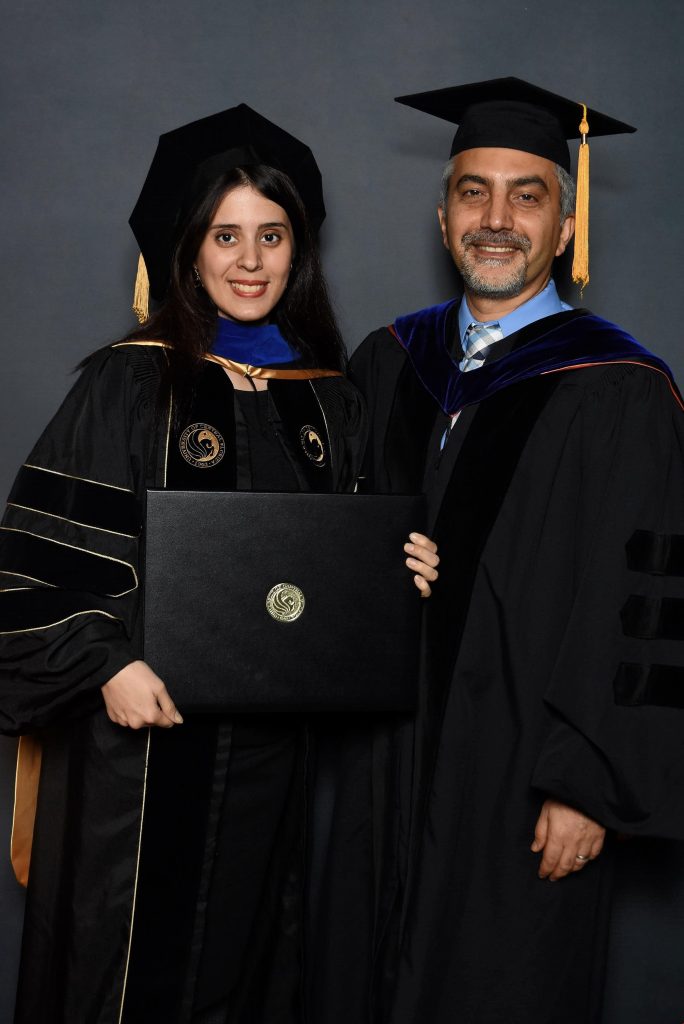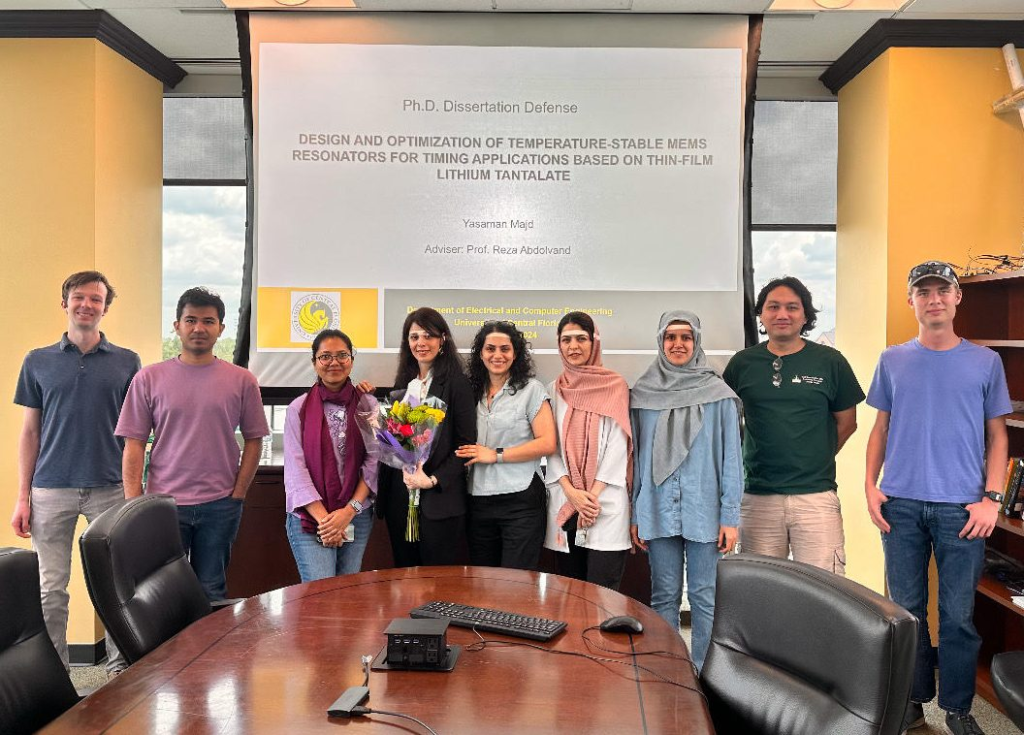The Dynamic Microsystems Lab (DML) celebrates Yasaman Majd, a recent doctoral graduate, for successfully defending her dissertation this past summer semester and walking the stage for her PhD in Fall 2024.

Yasaman pursued her Ph.D. in Electrical Engineering at the University of Central Florida with MEMS resonators as her research focus. She has recently accepted a full-time position with Apple in Texas as a Touch Sensing Engineer.
Her dissertation entitled “Design and Optimization of Temperature-Stable MEMS Resonators for Timing Applications Based on Thin-Film Lithium Tantalate” was successfully defended on June 17th, 2024.

Dissertation Summary:
In her research, she investigates the development of a silicon-based MEMS device that achieves low-frequency variation across wide temperature ranges, high-quality factors, and low insertion loss, meeting the demands of modern communication systems. She explores the thermal behavior of S0 Lamb wave X-cut Lithium Tantalate (LT) resonators, demonstrating a zero-temperature coefficient of frequency (turnover temperature) both numerically and experimentally. These resonators are optimized for high electromechanical coupling (~5%), high turnover temperatures (>80°C), and a quality factor of ~2000 at 200 MHz. Additionally, she proposes a novel passive temperature compensation method using a heterostructure of doped silicon and rotated X-cut LT resonators to cancel both first and second-order temperature coefficients. This innovative design achieves a frequency drift of just 70 ppm across a temperature range of 20°C to 100°C at 313 MHz, significantly outperforming conventional silicon-based resonators.
DML wishes Dr. Majd all the best in her future endeavors and looks forward to her continued growth and next visit!

2 replies on “Congratulations, Yasaman Majd, on Your Ph.D. !”
Congratulations, Yasaman! What a fantastic achievement – your dedication to Deep Metric Learning truly shines through. One of the things I find most inspiring is the potential of embedding spaces to drive real-world solutions. Might this approach have applications in fields like personalized medicine diagnosis?
Congratulations to Yasaman Majd for such an impressive achievement! It’s truly inspiring to see her hard work culminate in a Ph.D. under Dr. Lee’s guidance, especially given the interdisciplinary nature of her research connecting robotics with psychology.
I’m particularly fascinated by the idea of using multi-modal perception and trust indicators to enhance human-robot interaction—it sounds incredibly impactful for real-world applications where smooth and reliable collaboration is key.
Diving a little deeper, are there specific trust indicators Dr. Majd found most influential in her research, perhaps some that were surprising or less intuitive a priori? And thinking about the future, what advice might she offer to others looking to bridge a gap between two distinct academic fields like engineering and psychology to find those powerful, interdisciplinary synergy points?